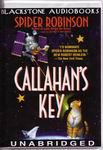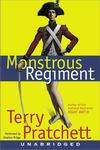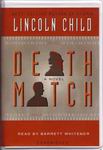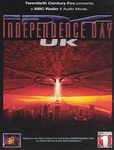
 Callahan’s Key
Callahan’s Key
By Spider Robinson; Read by Barrett Whitener
9 Cassettes – Approx 12.5 Hours
Publisher: Blackstone Audio
Published: 2003
ISBN: 0786125519
Themes: / Science Fiction / Humor / Callahan’s Place / Florida / Nikola Tesla / Robert A. Heinlein / NASA /
The universe is in desperate peril. Due to a cluster of freakish phenomena, the United States’ own defense system has become a perfect doomsday machine, threatening the entire universe. And only one man can save everything-as-we-know-it from annihilation. Unfortunately, he’s not available. So the job falls instead to bar owner Jake Stonebender, his wife, Zoey, and superintelligent toddler, Erin. Not to mention two dozen busloads of ex-hippies and freaks, Robert Heinlein’s wandering cat, a whorehouse parrot, and misunderstood genius-inventor Nikola Tesla, who is in fact alive and well.
Set in 1989, though published and written in 2001, Spider Robinson’s Callahan’s Key is a mighty funny tale. But that is not a shocker. Nobody except Douglas Adams does science fiction humor better than Spider Robinson. But what was a shock is that novel makes any sense at all. With a cast of literally dozens of speaking characters, the only thing that keeps the lunatic asylum of a novel from going completely off the rails is the first person perspective. Well mostly that… well, actually that and some sober thoughts from former Vice President of the United States Dan Quayle. Each chapter begins with a real quote from Dan Quayle! But he’s not the focus of this tale, not at all. Instead, something is about to go wrong with a super secret death ray launched by Space Shuttle, which is under the supervision of Dan Quayle, though he isn’t actually mentioned in the book. Anyway, somebody has to stop this death ray before it goes off and destroys the universe. Thankfully, Jake Stonebender, our perspective protagonist has saved the world a number of times. It’s just par for the course when he’s asked to do it again by Nikola Tesla, who, thank you very much, is alive and well and has become a time traveler. Back in 1989 though, Jake, his bulletproof family, and his crew of whacked out hippies and mad scientist customers decide to move south to Florida’s Key West… to ah… get a better handle on the job. Needless to say they fit right in.
I had a lot of fun spending some time with these characters. If you’ve read a Callahan yarn in the past you’ll be pleased to hear that all the old gang present again. If you’re a new to Robinson’s long running comic novel series you may do better to start with The Callahan Chronicals (also from Blackstone Audio). In this one though, Robinson not only references Robert Heinlein – with an uncanny channeling of his writing style – he also re-introduces us to Pixel, Heinlein’s cat and the eponymous Cat Who Walked Through Walls! Along the way we get to visit the very real, (actually fictional), dockside home of John D. MacDonald’s Travis McGee and numerous other side adventures. By the time the actual plot gets steaming into full swing I had almost forgotten that novels are supposed to have them. But that is okay. Plot isn’t really all that important to this novel’s experience, so I was actually a little disappointed that they had to even discuss it. Barrett Whitener is just terrific at voicing Jake Stonebender and his crazy friends. It sounded like he was having a blast performing it too. Nearly every minute or so of the novel’s production a groaner pun or a ridiculous situation had me smiling or wincing – and sometimes painfully at the same time. So if you’re in the mood for an ultra-zany audiobook reach no farther than Callahan’s Key. And tell them Nikola Tesla sent you, because he might not really be dead.
Posted by Jesse Willis




 CBC RADIO ONE’s – Between The Covers program will be broadcasting the award winning author Kenneth Oppel’s latest novel “Airborn” (a wild adventure with some fantastic twists. AIRBORN is set in an alternate past, where air travel has followed the route of giant dirigibles rather than jet planes. The cabin boy of a luxury airship discovers a remarkable secret in the clouds high above the earth and must find a way to keep it – and his ship – out of the hands of unscrupulous men).
CBC RADIO ONE’s – Between The Covers program will be broadcasting the award winning author Kenneth Oppel’s latest novel “Airborn” (a wild adventure with some fantastic twists. AIRBORN is set in an alternate past, where air travel has followed the route of giant dirigibles rather than jet planes. The cabin boy of a luxury airship discovers a remarkable secret in the clouds high above the earth and must find a way to keep it – and his ship – out of the hands of unscrupulous men).